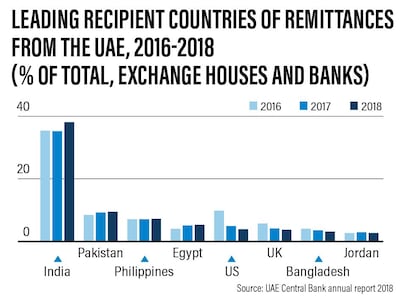The role of Filipinos, the third largest expatriate community in the UAE, has evolved with growing purchasing power and representation across all sectors, according to a new study from communications consultancy Eon Group.
Of the 700 people surveyed in the Focus on the Filipino in the UAE study, 64 per cent work in five sectors: architecture, engineering and construction (17 per cent); tourism and hospitality (16 per cent); customer service (13 per cent); health and medical fields (10 per cent) and marketing and advertising (8 per cent). Only 6 per cent work in manufacturing and production, and a similar figure work in domestic and household services.
“By and large, the Filipino narrative [in the UAE] — 10, 15 years ago — has always been about Filipino domestic help and construction workers,” says Mori Rodriguez, chief innovation officer of Eon, which has been in Manila for 21 years and opened an office in Dubai in November. “It is time to update the narrative — time to break the stereotype of overseas Filipino workers and recognise them for who and what they truly are.”
An estimated 750,000 of the 10 million Filipinos working across the globe are in the UAE — the second leading GCC destination for Filipino overseas workers, after Saudi Arabia. In the UAE, they are the third largest segment sending money home after India and Pakistan, accounting for 7.2 per cent of the Dh169.2 billion of outward personal remittances last year, according to the UAE Central Bank’s annual report.
Mr Rodriguez says the Filipino community “has served as part of the country’s economic backbone for decades” and has been “a quiet, steady presence that has been brought up with the country — growing with it, multiplying its wealth, fostering its culture of innovation [and] creating new opportunities”.
Eon’s report is based on 200 responses from an online survey and 400 face-to-face surveys, as well as interviews and focus discussions with 100 residents in Abu Dhabi, Dubai and Sharjah. Among the 600 respondents, 58 per cent are male and 42 per cent female and more than 70 per cent are aged between 25 to 45.
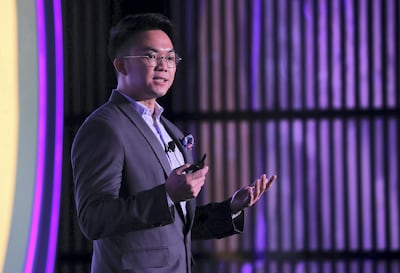
The majority of respondents are educated, the study found, with 64 per cent graduating from university and 7 per cent holding postgraduate degrees. About 22 per cent have received some university education and 7 per cent only have a high school diploma.
In terms of job positions, 20 per cent are at the mid-senior manager level, 27 per cent at associate or supervisory levels and 31 per cent at entry level. Filipinos are still underrepresented at the higher level with only 5 per cent in executive or director positions, and a mere 4 per cent owning a business or enterprise in the UAE.
Seventy-one per cent said income was a major factor in working in the UAE. A quarter earn a salary below Dh3,000 a month. However, 37 per cent earn Dh3,000 to Dh7,999; 18 per cent make Dh8,000 to Dh12,999; and a fifth earn more than Dh13,000. The majority send Dh1,101 or more to the Philippines every month.
The top reasons to stay in the UAE, after having a stable job and higher income, are the need to address their family’s economic needs and career growth opportunities. Around 40 per cent of respondents have lived in the UAE for two to five years and 37 per cent have lived here for more than six years. About one third said they plan to stay in the country for another three to five years.
Junie del Mundo, chief executive of Eon, says the purpose of the research is to help “companies better understand Filipinos in the UAE — not only as a consumer, but also as powerful allies with unique aspirations and dreams”.
“We want to show that this big, dynamic market is a tremendous untapped opportunity waiting to be realised,” he says.
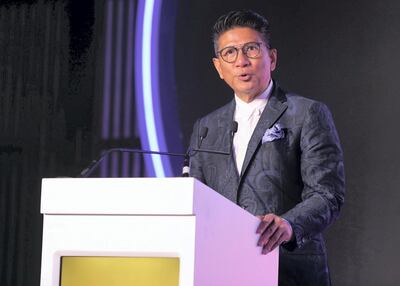
The average Filipino, based on the study, spends the most money on housing, followed by food and transportation. But they also make frequent trips to the mall, with 48 per cent visiting one to two times a month, 32 per cent going three or four times and 16 per cent five times. A sizeable portion (43 per cent) spend an average of Dh21 to Dh50 per meal when they eat out, while about 16 per cent are willing to spend more than Dh80 per meal.
The qualitative responses led Eon to segment 100 people into three categories, reflecting the "nuances to the Filipino population in the UAE", the report said. Twenty per cent fell under the category of "Expat Achiever," 37 per cent under "Bayaning (Hero) Survivor" and 43 per cent under "Pinoy Dreamer".
The Expat Achievers are defined as “Filipino professionals who are equipped with technical and creative skills and have an entrepreneurial mindset,” such as doctors, engineers, architects, fashion designers, IT experts and business owners. This segment prefers “high-quality products and popular brands, but are sometimes sensitive about prices”.
The Bayaning Survivors are the semi-skilled domestic household, service and construction workers. They “send most of their earnings to their families back home, specifically for the education of their children”.
The largest group are the Pinoy Dreamers, Filipinos who are “skilled and equipped with essential and technical skills”. They include nurses, hotel personnel, service crew, IT or office staff and sales and marketing staff. They are tech-savvy and are likely to get swayed by endorsements, especially by celebrities. They like to try new brands and products, but are also price conscious, waiting for sales and promotions.
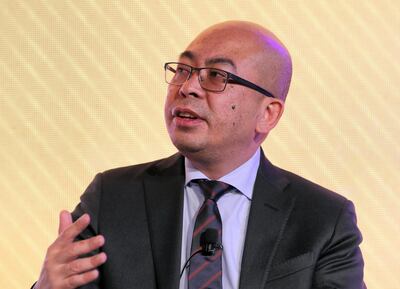
Renato Duenas, deputy cunsel-general of the Philippines Consulate in Dubai, says the study "validates what we have seen", but suggests that Filipinos in the UAE should "perhaps be more enterprising".
There is still a noticeable lack of Filipino entrepreneurs in the Emirates, says Ali Al Rais, executive director of Al Rais Enterprises. After spending four years living in the Philippines, he observed the country’s economy growing, but says he has not seen a significant impact in the UAE. “Where are the real entrepreneurs from the Philippines? The big conglomerates? Why do they not come here?” he asks.
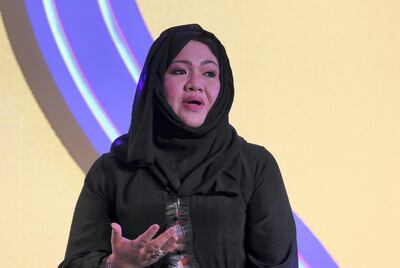
One of the few Filipinas at executive level in the UAE is Mary Jane Alvero-Al Mahdi, who hopes her story can inspire others. She came to the UAE in 1992 at 22 to work as a quality assurance officer for a textile company in Jebel Ali, earning only Dh1,000 a month.
A chemical engineer by profession, Ms Alvero-Al Mahdi worked her way up to become chief executive of Geoscience Testing Laboratory, part of the Prime Group and a subcontractor for the Downtown Dubai project.
"The community looks up to me. My story is their inspiration. It empowers them, it influences them," Ms Alvero-Al Mahdi tells The National.
She says the study's findings are not a surprise, but made her proud of her community’s growing economic weight in the UAE.
“I know that Filipino people are growing, they are developing, they are improving. Some are already in the C-suite [executive-level managers within a company], some are in middle management,” she says. “But this study has opened my eyes that, in all perspectives of the economy, we are there.”


